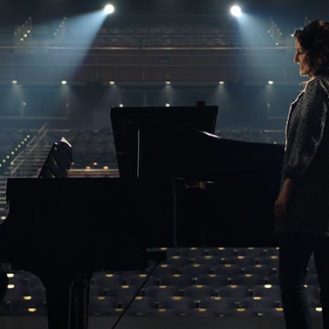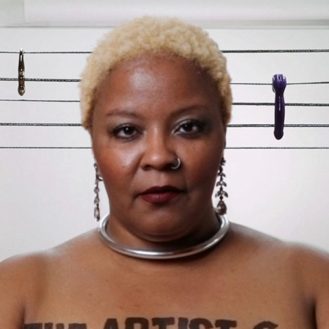The World to Come, the second feature from Norwegian filmmaker Mona Fastvold (The Sleepwalker), is a plodding meditation on love and grief that is salvaged from mediocrity by the palpable chemistry between its lead actors. Still, the film doesn’t offer much that is fresh of exciting and rehashes some tired lesbian period piece tropes.
Set in the eastern United States in the mid-nineteenth century, The World to Come follows Abigail (Katherine Waterston), a farmer’s wife whose grief over the death of her young daughter has opened a chasm between her and her husband (Casey Affleck). When another couple moves into the neighbouring farm, Abigail finds herself drawn to the wife, Tallie (Pieces of a Woman’s Vanessa Kirby). A passionate affair develops between the two women, but it is threatened by Tallie’s controlling husband (Possessor Uncut’s Christopher Abbott).
One of the things that I enjoyed most about this film was its depiction of rural life in the 1800s. The landscape and changing seasons have a tangible presence; the snow and frozen mud of the winter of Abigail’s grief is contrasted beautifully with the pastoral abundance of her summer of romance with Tallie. The immersive effect is heightened by the score, which shifts from haunting, to threatening, to joyous seamlessly.
Though only a little over ninety minutes long, The World to Come moves at a snail’s pace. While the mood and setting are interesting and immersive at first, they do become tedious and repetitive at points. The World to Come is based on a short story by American writer Jim Shepard and both the pacing and pastoralism betray the film’s literary origins. This isn’t necessarily a bad thing, but it could be potentially off-putting to audiences that don’t have the patience for it. The dialogue is often awkward, and sometimes nonsensical, without the contextualization afforded by prose. Luckily, the cinematography, editing, and performances prevail when the words themselves falter. There were times when I had no idea what Tallie and Abigail were saying, but it didn’t matter because I felt their meaning.
Waterston makes the viewer feel every fissure and edge of Abigail’s internal and external world in excruciating detail. She also has excellent chemistry with Kirby, and the heat between them is really what sells this film – at least for me. Like many movies featuring lesbian desire, especially those with historical settings, The World to Come is infused with yearning. Has it been done before? Yes. Has it been done better? Of course (Céline Sciamma’s Portrait of a Lady on Fire, anyone?) – but I won’t deny that I enjoyed watching Tallie and Abigail’s courtship. I felt drawn into their world; not just into the setting itself, but also the private, intimate world between the characters.
Without giving too much away, I will say that the third act is a disappointment. Though the outcome of Tallie and Abigail’s affair is predictable, it also mirrors tired and problematic tropes that haunt many queer romances – particularly those with historical settings. While Waterston and Kirby’s performances are praiseworthy, I know that I would have enjoyed them much more if the outcome of the story were different. Too often, queer characters are denied narratives that allow happiness or joy. Historical stories that feature love between two women (or two men, trans folks, etc.) often end in tragedy. The issues with this trend have been written and discussed extensively by lesbian, gay, trans, and queer critics and creators for decades and I will not rehash them here. Suffice to say that in 2021 it is long past time to leave them behind.
**********
Do You Tweet? Follow These Tweeple:
Shannon Page: @ShannonEvePage





Be the first to comment